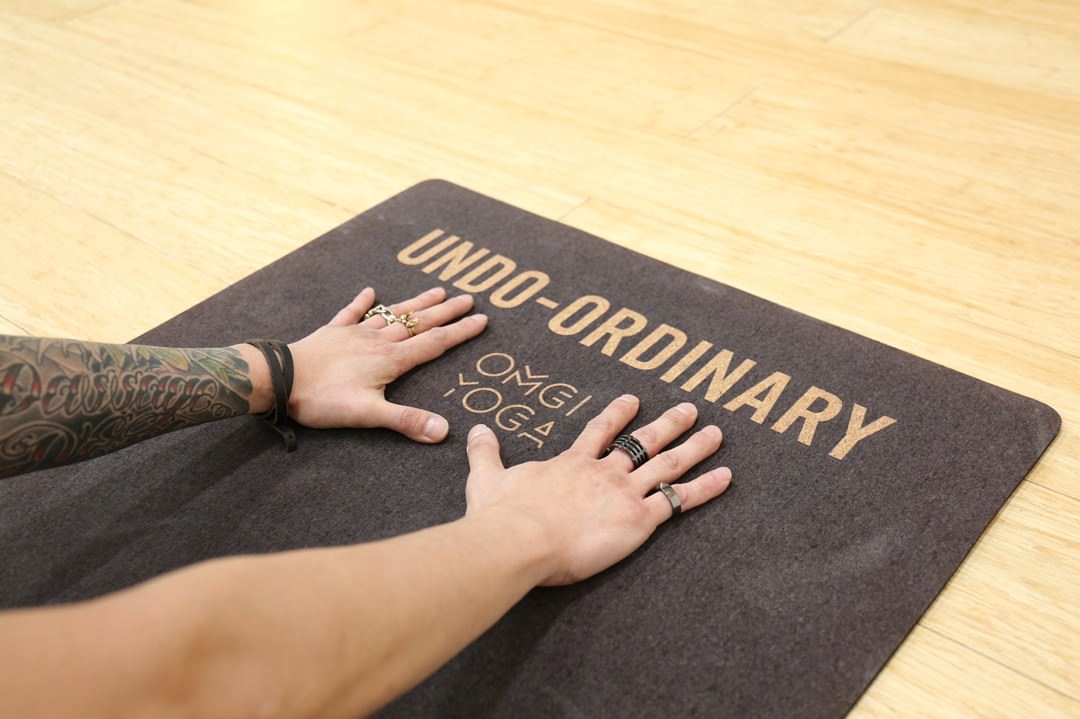As humans often do, we overcomplicate a lot of things in our lives. As runners, we also overcomplicate things in our training. We like to take the simplicity out of running. Rather than just lacing up our shoes and heading out the door to run, many of us must make sure all of our gadgets are charged, our fuel belts are packed with excessive nutrition, water, extra keys, ID, safety equipment, back up charger for our phones, headphones, sunscreen, bug spray, and whatever else you can pack in that little waistband thing I see people running with that aren't always necessary. Especially for short runs. While it's important to hydrate, especially during the summer months, it's also important to keep it simple.
 For me: I try to keep running as simple as possible. The head games I play are riddled with enough complicated baggage as it is, carrying along physical baggage is just too much. I think this is another reason I don't do marathons or Ultras. I like to keep it simple. I do make sure my watch is charged, my phone as well, and I have my key. That's typically it. I keep it simple. My shoes may change depending on what run I do or what I'm wearing because I might have to match but otherwise: I keep it basic.
For me: I try to keep running as simple as possible. The head games I play are riddled with enough complicated baggage as it is, carrying along physical baggage is just too much. I think this is another reason I don't do marathons or Ultras. I like to keep it simple. I do make sure my watch is charged, my phone as well, and I have my key. That's typically it. I keep it simple. My shoes may change depending on what run I do or what I'm wearing because I might have to match but otherwise: I keep it basic.
And trails, they should be basic too. They can also provide an amazing scenery change for your daily runs. Spring is shifting into summer and days are going to get hotter. Outdoor runs are going to get sweaty, even for the short ones but here's the thing: you can keep cooler and even make yourself a stronger, better runner by finding your way to trails without lugging an entire bag of equipment with you. That gets heavy and takes away from the fun you can have playing in the woods.
When I tell people I'm going for a trail run they often think I am going to drive 30-45 minutes outside of the city to go run. They sometimes think I am even going to drive up to the mountains and make a huge day trip out of it like I'm going run 8-10 miles. Y'all, I don't run longer than 6 miles these days. I'm only planning to race 5k's and shorter. Maybe a 4 miler. I use trail runs as fun easy workouts somedays but also hard workouts depending on which trail system I choose and if I sprint certain hills within those. I also prefer trails because the softer ground is better on the body. The lower impact trails provide, after all the constant pounding we do as runners: that makes for a happier me. From a coaching perspective: the more you can run on softer surfaces, the happier your body will be. Save your more focused runs for the track or greenway and take your easier runs to the woods to have some fun with your run!
 OK. So, what do I mean by trails and woods and the ease of access? You would be surprised how easy it is to find trail loops in your city or town. Have you ever considered where the local high school XC teams runs their meets and practices? They don't stay on road everyday. Additionally, local Parks and Rec departments typically have trail systems where their soccer and baseball complexes are. Universities often have their own trails that are usually open to the public as well. Have you ever wondered where your friends take their mountain bikes? They have to go somewhere and don't always drive way out of town to get a ride in. You can usually find 3-6 mile trail loops hidden everywhere within towns and cities. Central Park even has softer gravel trail to run along that gives your body a break from the city blocks and usual pounding of the pavement.
OK. So, what do I mean by trails and woods and the ease of access? You would be surprised how easy it is to find trail loops in your city or town. Have you ever considered where the local high school XC teams runs their meets and practices? They don't stay on road everyday. Additionally, local Parks and Rec departments typically have trail systems where their soccer and baseball complexes are. Universities often have their own trails that are usually open to the public as well. Have you ever wondered where your friends take their mountain bikes? They have to go somewhere and don't always drive way out of town to get a ride in. You can usually find 3-6 mile trail loops hidden everywhere within towns and cities. Central Park even has softer gravel trail to run along that gives your body a break from the city blocks and usual pounding of the pavement.
I can hear the excuses now on the need for different shoes and no budget for those. I've been there. If think you need to get a special pair of shoes just for running trails, you don't necessarily have to. Given your runners have a decent amount of tread on the bottom and are not flats, you should be fine to set out on your local run/bike trails. I personally have both trail shoes and road shoes but some pairs of my road shoes do go off-roading. You just don't want to wear race flats or any similar smooth bottom runners on trails. They won't offer you the proper grip or support for running the dirt that even the least technical of trails offer.
If you have never run trails before, don't hesitate to ask someone you know who does run trails often to run with you and show you the ropes or ask where local trails are. It can be important to learn the ins and outs of what I often refer to as my "Happy Place." This is especially important because sometimes you will happen upon a mountain biker. Don't expect them to stop for you. It's a courtesy to step aside for them because as a runner, you have more control than they do on their bikes. Arrows typically show you which way to go and just like on ski slopes, those black diamond markers you may see off on a side loop… well those are for more technical paths. At least in my city. Check to see that this is the same for yours.
Speaking of technical and thinking of shoe types: the types of trails also vary from those black diamond technical loops to super "green" loops that are flat surfaces with an amazing canopy of leaves and wonder over your head that will keep you cooler this summer. We all know that it's cooler in the shade in the summer, but it's even more pleasant to run through the shaded trails in the summer. Even in the winter, trails feel warmer to me when it's cold outside. I love it. So protected. So much to explore. So many trees to consider climbing…and things to play on... 
With all of that said, there are a few things to keep in mind when going for even the shortest of trail runs:
- Leave the trails as you found them. That's a given no matter where you go. Let's protect this gorgeous planet of ours. Don't leave trash, destroy nature, do stupid things. Please and thanks!
- Tell someone where you are running, if you are running alone on trails. I typically don't see anyone when I run trails, so it's good practice to let someone know your location and time period of when they should hear from you again.
- If it has just borderline monsooned for a day or two or five in a row: don't go run the trails. I love a good mud run but that may tear the trails up, and others, especially if mountain bikers ride those trails, well they may hate you for it. Additionally, your chances of injury may increase depending on the level of slick the trails are if you are new to the trail running game. Ankle strength is key.
- Bugs! During the summer months, be sure to check yourself for ticks after your run and if you feel the need, spray yourself before your run with bug spray. My theory: if you keep moving the bugs won't have time to bite you! I hate bug spray.
- Consider packing a small cooler with a damp wash cloth, icepack, and extra water bottles {one plain and one with electrolytes!}. While you may not need extra water on the trails for a short run, these items can still be pretty awesome to have after a summer run! It's crucial to stay hydrated in the summer months!
- Most parks and trails have water fountains scattered throughout their parks which gets rid of your need to carry water bottles. UNLESS you are practicing your fueling for a marathon or you will be out for more than 45 minutes on a hot summer day and there aren't actually water sources around.
- Learn your trail signage and stay on the path. I don't hate getting semi-lost on new trails if I'm not on a timeline, but remember some trail loops have funny turns and you don't want to go off the path and into some poison ivy if you're allergic.
- IF YOU MUST, DO NOT RUN WITH BOTH EAR PHONES IN. This is so dangerous on the road, but especially in the woods. You need to be aware of your surrounding always. I just finished testing out and getting a pair of new rad ones that actually sit on the outside of our ears. Safe. Awesome.
While those last two may have been threatening and daunting, they're really no big deal. Ok, the last one is a big deal to me. However! Those who cut and clear trails try to get rid of the bad stuff for everyone! Trails are all about having fun and playing and adventure. They're about getting outside and exploring. When I stopped running for roughly 7 years, the one thing that got me back on track to doing what I love were my hometown trails after I graduated college. I haven't stopped running since…injuries don't count.




